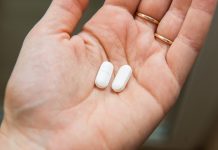A new study has revealed that new medicines and vaccines approved for use in the United States are often unavailable in countries that helped to develop them
The study, led by Yale, covers 34 drugs that the U.S. Food and Drug Administration (FDA) approved between 2012 and 2014. Approvals were made on the basis of a total of 898 trials that were held in the United States and 70 other countries worldwide.
Researchers analysed 563 drug trials and found that five years after approval in the United States, only 15% of the drugs (5 of 34) were approved in every country that hosted the trials.
Among the 70 countries, 7% (5 countries) received market access to the drugs within a year of FDA approval and 31% (22 countries) did so within five years.
High-income countries
Approvals happened quicker in high-income countries while none of the drugs were available anywhere in Africa except in South Africa – which had access to just 24% of the drugs after five years.
Only 1 of the 34 medications was approved for marketing in all the countries where it was tested a year after FDA approval.
Drugs
The 34 drugs were grouped into six treatment areas: infectious disease; cardiovascular disease and diabetes; autoimmune, musculoskeletal, and dermatology; neurology; and psychiatry.
Jennifer Miller, assistant professor at Yale School of Medicine, founder of Bioethics International and the study’s lead author, said:
“We discovered substantial gaps in access to new medications that raise concerns about the equitable distribution of research benefits. Ensuring market access to medicines for the countries helping to develop them can help effectuate a bedrock principle of research ethics: that the benefits and burdens of research should be shared equitably among the people affected by it.”
“We found that the typical drug approved by the FDA was tested in 25 different countries,” said Dr. Cary Gross, professor of medicine at Yale School of Medicine and a co-author of the paper. “If the citizens of those countries never gain access to the new drug, then one has to ask why are they participating in the research in the first place? Just to see if it’s safe for use in the United States and other wealthy countries?”
“Drug research across international boundaries provides U.S. patients access to new medications and vaccines, and could, in theory, maximize benefits for all: The U.S. contributes capital that other countries lack, while those countries contribute human volunteers and a workforce necessary to complete clinical trials expeditiously,” said Peter Bach, director of the Center for Health and Policy Outcomes at Memorial Sloan Kettering Cancer Center, and a co-author of the study.
“For these partnerships to be truly equitable, then the host countries must benefit from the research by quickly gaining access to the new medications after FDA approval.”
The full study has been published in JAMA Network Open.











